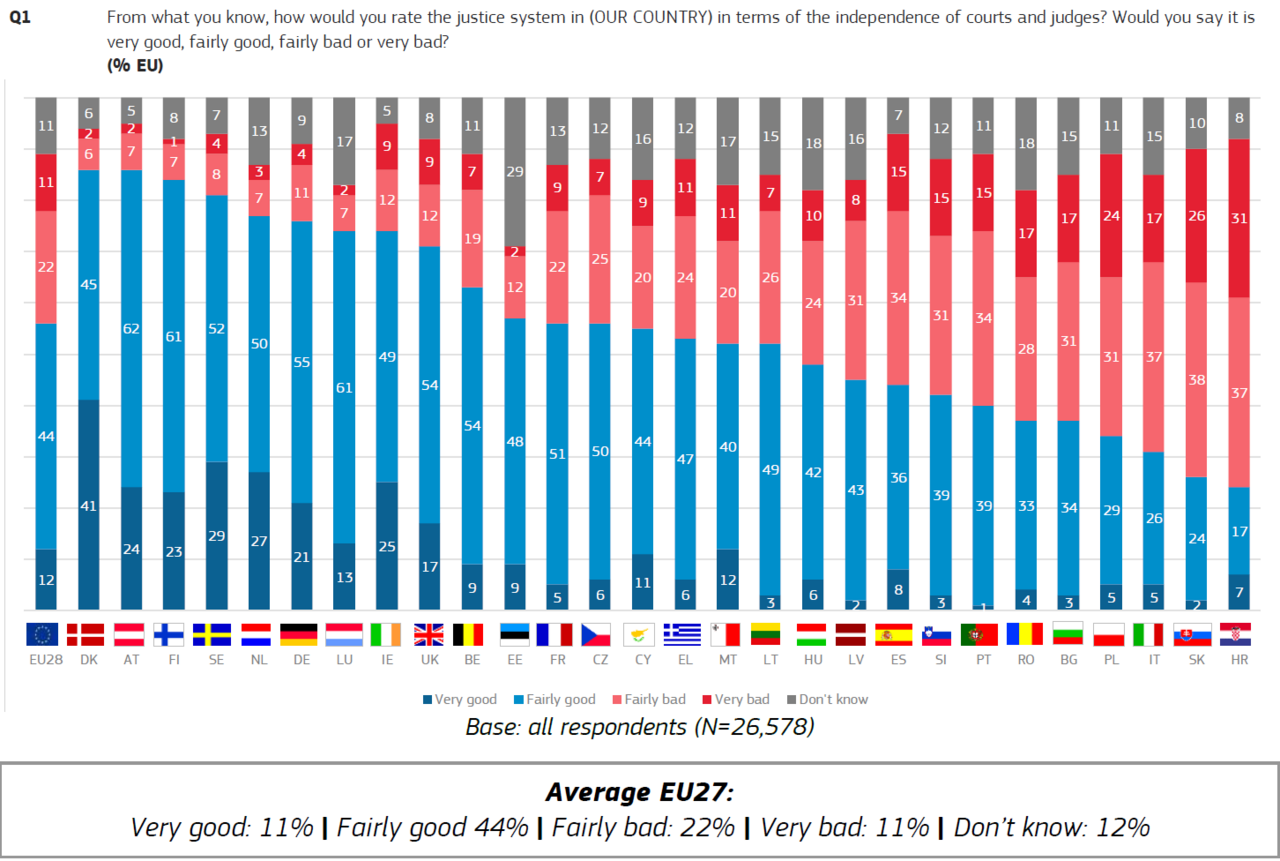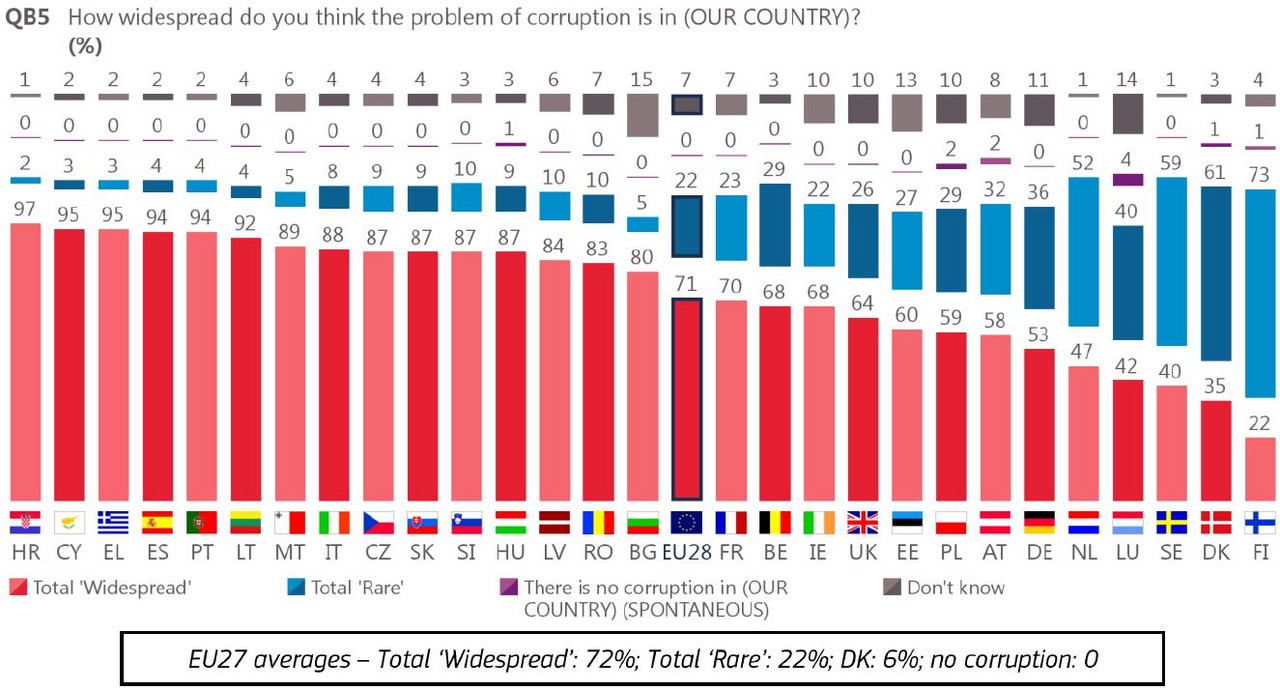Every week, surveys from all across the EU tell us what Europeans are thinking, feeling and talking about. In our new segment, eupinions echo, we collect these voices and play them back to you. Each week, we highlight one survey of particular interest in a short blogpost and share daily new survey results via our website and our twitter channel.
On July 10th the European Commission published their annual EU Justice Scoreboard. In it, the authors mean to effectively rate the justice systems in all EU Member States in a comparative overview, based on their efficiency, quality and independence. While large parts of the scoreboard use a purely quantitative approach, comparing data such as for example the average length of court proceedings, the scoreboard also takes into account the relative perception of a justice system by the Member State's populace. In order to do this, a special Flash Eurobarometer survey is conducted, the results of which are now available.
Overall, EU citizens appear to be satisfied by their countries' judiciary systems. An absolute majority of 56% rate their justice system – in terms of the independence of courts and judges – as good, with 12% rating it as very good and only a third of respondents (33%) saying its bad. Similarly, in 17 out of the now 27 Member States an absolute majority rated their justice systems as good. Even though, these results have been overall stable since last year, there are also about two-fifths of all Member States where the public's perception of independence of their courts has decreased over the last year. Still, when compared to eight and four years ago, perceptions have developed positively with the overall share of good ratings increasing by four percentage points since 2016.




